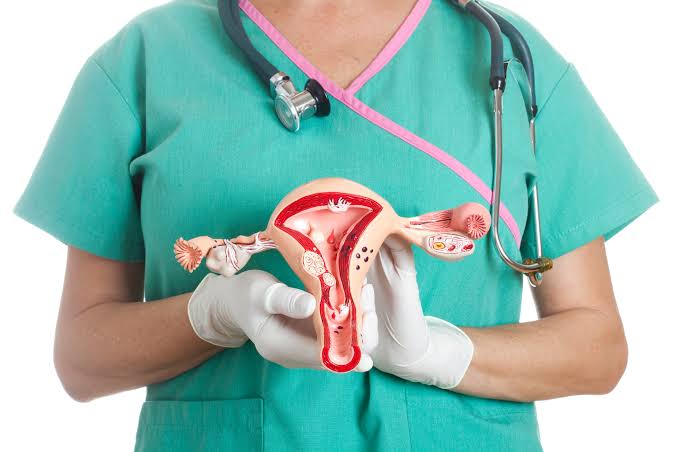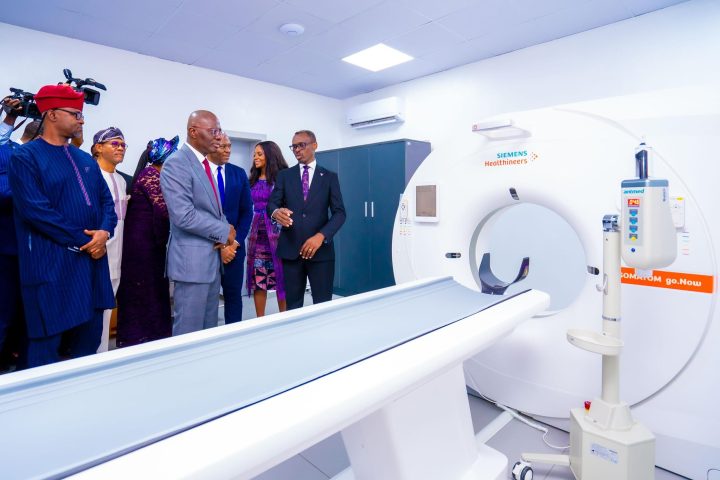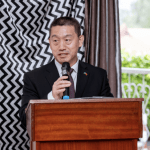Women have been advised to regularly go for cervical cancer screening as early detection can save lives.
A health worker at Arakale Health Centre, Akure, Ondo State, Ilemobayo Wuraola gave the advice during a cancer awareness campaign for women attending the Family Planning (PF) in the clinic.
Join our WhatsApp ChannelREAD ALSO: New Cancer Vaccines Raise Hope
She sensitised the women to the dangers of cervical cancer and the importance of going for regular screening to detect the disease early so that appropriate measures can be taken to save life.
“Cervical cancer screening is important for early detection of the disease, and women of childbearing age or sexually active females should get tested,” she said.
Wuraola advised the women to take advantage of the free cervical cancer screening programme provided by the government at the Primary Health Care (PHC) centre to know their status.
As a result of her campaign, 15 women decided to conduct their first screening for Human Papillomavirus (HPV). According to findings, the HPV virus, if not detected early and treated appropriately, can progress to cervical cancer. However, it’s preventable through HPV vaccination, early and regular screening with Visual Inspection with Acetic acid (VIA), Pap smear to find any pre-cancerous lesions and effective treatment.
Cervical cancer is the second most common cancer affecting women in Nigeria and the fourth most common cancer among women globally. In 2020, Globally, it was responsible for 604,000 new cases with 342,000 deaths mostly between the ages of 15 to 44 years.
The HPV types 16, 18, 31, 35, 51, and 52 are all high-risk and are prevalent serotypes in Nigeria with serotypes 16 and 18 responsible for 66.9 per cent of Nigeria’s cervical cancer prevalence.
To raise awareness and call for action against the silent killer, the World Health Assembly in 2020 adopted the Global Strategy for cervical cancer elimination.
The strategy targets three key factors:
•Vaccination – 90 per cent of girls are vaccinated with the HPV vaccine by the age of 15;
•Screening – 70 per cent of women screened using a high-performance test by the age of 35 and again by the age of 45;
•Treatment – 90 per cent of women with pre-cancer treatment, and 90 per cent of women with invasive cancer managed.
In their efforts to contain the disease, World Health Organisation (WHO), the Clinton Health Access Initiative (CHAI), and other key stakeholders are actively supporting Nigeria to embark on cervical cancer screening and awareness creation about the disease.
With funding from the Susan Thompson Buffet Foundation, WHO is providing catalytic support to five states (Anambra, Ondo, Kebbi, Niger and Ekiti), on routine cervical cancer secondary prevention services across public health facilities. The target is to reach up to 5,000 women per state.
Efforts have been targeted at demand generation, capacity building for healthcare workers, screening and diagnosis, appropriate treatment, and establishing robust patient tracking systems.
Mrs Oladele Funmilayo, a 40-year-old trader and mother of three who is a beneficiary of the scheme in Ondo State expressed her joy to the healthcare worker and government for the opportunity to undergo the pre-cancerous lesions in August 2022 and full treatment afterwards.
“I came to the clinic to access FP services, but when the health worker spoke about the cervical cancer screening, I thought why not, especially seeing that it was free? It is called arun jejune (Yoruba – literally meaning a devouring disease), but I do not know much about it,” she said.
Mrs Funmilayo Oladele, during her cervical cancer test by the health worker, explained that patches of pre-cancerous lesions if not treated, could develop into full-blown cancer.
“I felt relieved when the health worker told me I can access treatment at no cost. She said the treatment was part of the free cervical cancer screening and treatment programme implemented by the Ondo State government and some other partners.
My husband and family have been very supportive, especially during treatment. I am happy I benefitted from the programme because I don’t know what might have happened in the future,” she says.
In his response to the initiative and impact among the targeted audience, the Ondo State Commissioner of Health, Dr Banji Ajaka, said the figures of women who have been screened for cervical cancer in the state have been impressive.
He added that the campaign was a deliberate effort to ensure that people (especially vulnerable women and girls) know about the disease, undergo screened and be positively treated.
In his reaction, the WHO Country Representative, Dr Walter Kazadi Mulombo, reiterated the commitment of the WHO to supporting the government on its course to eliminating the killer disease.
He further said that as long as Cervical Cancer is picked-up early and prompt treatment commenced, it is both preventable and curable.
“It is one cancer that can be eliminated in our life as a public health problem by ensuring a comprehensive approach to prevention, screening, and effective treatment,” he added.


![Relishing Ugba [Oil Bean] Delicacy](https://www.primebusiness.africa/wp-content/uploads/2025/06/Ugba-delicacy-720x480.jpg)














Follow Us